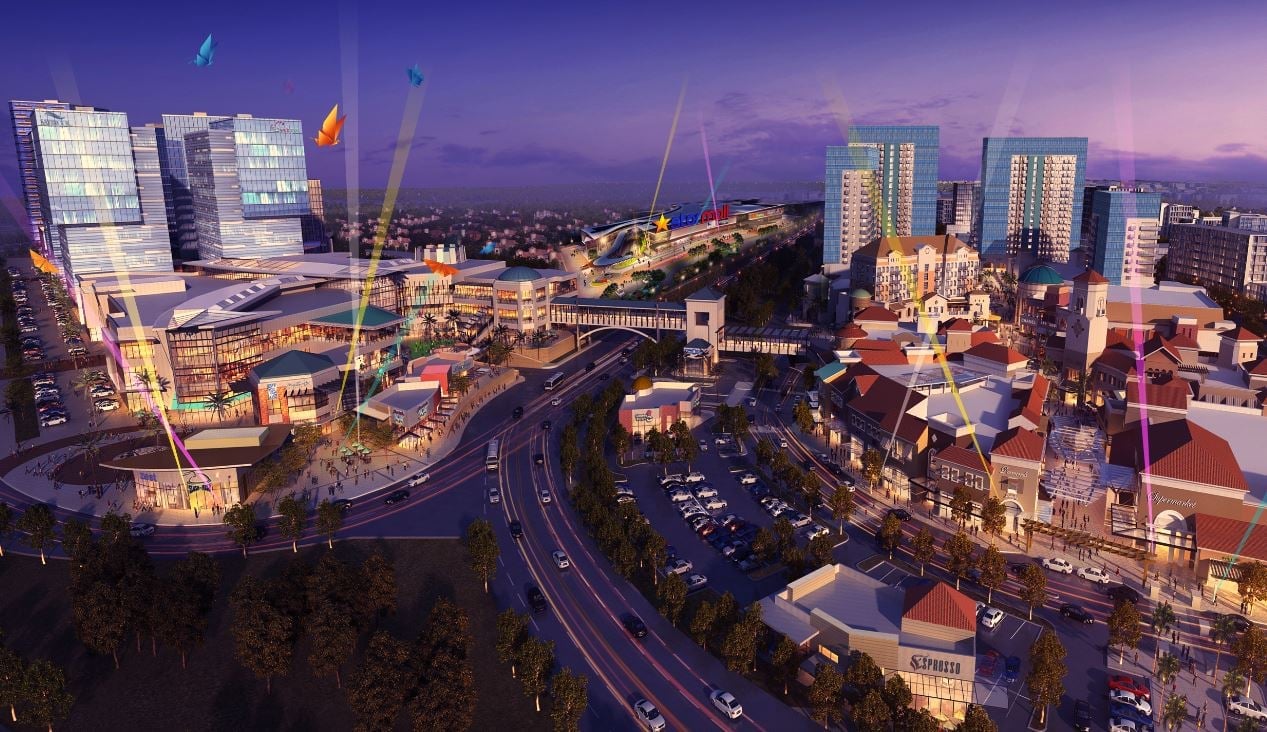BLOGS
Home Among The Stars: The Billionaire Space Race
The space race has been around much longer than social media, but it recently has become the focus of prominent personalities that the world is paying attention to as well. No longer reserved to governments and interstellar agencies, the space race is now dominated by the world’s famous billionaires and their ventures.
But what is the space race anyway? Why are some of the rich’s most recognizable faces pour in so much money and time to finally reach the stars?
Space Race: An Overview

What started as a competition between two countries became a unified cause to journey through the stars.
In the 20th century, the Space Race was born out of a competition between the United States and the former Soviet Union. The Space Race was seen as a way to exert dominance as the superpower: achieve superior spaceflight capability. From missile rockets, it gradually escalated into sending satellites, animals, and eventually, men into space and other neighboring planets. The Space Race is also credited for the formation of the National Aeronautics and Space Administration or NASA, and the installation of the International Space Station (ISS) in low Earth orbit, which is home for the selected few who have ventured to outer space.
The ISS may look like a futuristic luxury home, but it is designed specifically to do many things. In the initial agreement between NASA and Roscosmos, its Russian counterpart, the ISS serves as a laboratory, observatory, and factory while providing transportation, maintenance, and a station for possible future missions to the Moon, Mars, and asteroids. Since the 2010 United States National Space Policy, the ISS also serves commercial, diplomatic, and educational purposes.
Enter the billionaires space race

Elon Musk is leading this ultra-exclusive club, thanks to his SpaceX venture. Image from Wikimedia Commons.
In the press, there are at least three names who are making the headlines for the following similarities: One, they all made their fortunes in other industries, amassing (and sustaining) billions of dollars and then settling their sights on space ventures. Second, they all founded their companies within a few years of each other, which makes them the current frontrunners in the 21st century-version of the Space Race. While there are a number of startups all over the world who have been working on space solutions, they through their companies have largely benefited from strategic partnerships with government agencies. Moreover, they occasionally partner with legacy aerospace companies.
1. Elon Musk
You cannot mention his name without associating Space Exploration Technologies Corp or SpaceX, which was founded in 2002 as an aerospace manufacturer, space transportation services and communications company. The company was established by Musk focusing on a single goal: to reduce space transportation costs in order for humans to make Mars our next home.
After making a fortune in online payments and electric cars, Musk has made headlines thanks to the many milestones his space company made. Many of these milestones include building rockets that are capable of shuttling satellites and other cargo into Earth’s orbit, which is a considerable achievement for a commercial company given the fact that one trip requires speeds topping 17,000 miles per hour. SpaceX also built a 1,500-piece constellation of internet-beaming satellites as well. SpaceX also debuted the most powerful rocket in operation and showed the world synchronized landings of its boosters. The company also developed a spacecraft that successfully carried astronauts to the ISS.
SpaceX also came up with a solution on how to land and reuse much of its hardware after space flights. Beyond that, SpaceX’s expertise, solutions, and operations scale allowed them to win massive business contracts with both NASA and the US military. Moreover, SpaceX is focused on creating a spaceship that will take humans to the moon and Mars.
The milestones Musk and his SpaceX achieved created a fervent following who always champion the billionaire and his company’s efforts. And why shouldn’t he, when his company has almost single-handedly disrupted the rocket industry, which was considered fairly stagnant and somewhat uninteresting for a couple of decades. The commercial space sector was also born, and grew, largely thanks to SpaceX breaking records, making history, and accomplishing things that industry experts once thought impossible to do.
But if you are willing to bet if Musk is planning to build his next luxury house on Mars? Don’t plan on it just yet. Musk said on one occasion that he’d “like to die on Mars, just not on impact.“
2. Jeff Bezos

One cannot think of Jeff Bezos without the number one e-commerce marketplace in mind.
Jeff Bezos is our second billionaire on the list mainly because of the SpaceX vs Blue Origin rivalry. Bezos, who founded and grew Amazon into a multinational technology company that forays on e-commerce, cloud computing, digital streaming, and artificial intelligence, also established Blue Origin, a privately funded aerospace manufacturer and sub-orbital spaceflight services company out in Kent, Washington.
Similar to Musk’s goal, Bezos has said that his space company aims to help create a future where people live in space. The difference is that while Musk believes in colonizing planets, Blue Origin is focused on solutions to make lush, rotating manufactured worlds in orbit a reality.
On the other hand, Bezos and his company has made considerable efforts to disassociate itself from SpaceX. While SpaceX made achievements thanks to its speed and trial-and-error process, Blue Origin wants to take it slowly and meticulously in order to eventually send people to live and work in spinning, orbital space colonies in order to extend human life once Earth reaches a theoretical, far-off energy scarcity crisis. Since founding in 2000, Blue Origin has developed cheaper rocket and spacecraft technologies towards building the extraterrestrial housing Bezos envisioned. The company also laid out their plans to develop a lunar lander and build a moon base called Blue Moon with NASA. It also shared its plans for a huge orbital rocket named New Glenn and a constellation of internet-beaming satellites.
However, it can’t be helped that Bezos’ Blue Origin is compared to Musk’s SpaceX, from its ambitious technologies down to the number of coveted contracts won. Musk, on more than one occasion, has called Bezos a “copycat.” SpaceX also bested Blue Origin in competitions for several government contracts, one of which is the lunar lander project with NASA, and is currently being contested by Blue Origin. Also, Blue Origin’s goals seem to lean more on tourism, thanks to its
New Shepard vehicle project. The New Shepard, and its capacity to go above the Kàrmàn Line at 100 kilometers (62 miles) altitude, which is the internationally-recognized border of space, is said to create a very exclusive niche of tourism: suborbital space travel.
3. Sir Richard Branson

The 21st century space race is not complete with Sir Richard Branson of Virgin Atlantic in the mix.
Sir Richard Branson, who owns an empire of Virgin-branded businesses, is definitely not afraid of staking his claim as the space baron. Enthusiasts found that Virgin Galactic shares similar business plans with Bezos’ New Shepard at Blue Origin: both wanted to sell tickets to any thrill seeker who wanted to go on supersonic flights to the edge of space.
On the other hand, the technology used by Virgin Galactic is far too different from Bezos. Instead of a vertically launched rocket and capsule, Branson’s company aims to fly people to space using a winged, rocket-powered spaceplane instead. While Bezos and his team were successful in their spaceflight test, Branson actually beat the Amazon founder to it. It also made some of the Virgin Galactic employees who were tapped as crew members in the flight as newly-minted astronauts.
But the road towards that successful spaceflight (and edging out Bezos in his claim in the process) was arduous and hard. The 2014 test flight of the SpaceShipTwo tragically killed a co-pilot. Moreover, there were other technical difficulties that Virgin Galactic needed to iron out before the company deemed the spacecraft safe enough to fly its Branson to space.
It remains to be seen who will emerge as the final victor in the Branson vs. Bezos battle, but Branson has another notable achievement up his sleeve. The Virgin Orbit, which spun off from Virgin Galactic back in 2017, sent its first batch of satellites to orbit in January this year. Although it is not as powerful as Musk’s Falcon 9s or Bezos’ planned New Glenn rockets, Virgin Orbit’s LauncherOne, which takes off from beneath the wing from a Boeing 747 jet, is considered an industry leader in a niche race to develop rockets designed specifically for hauling small satellites.
Virgin Galactic is not just focused on developing solutions for space ventures. It intends to use its solutions to improve our way of life on Earth. For example, Virgin Galactic aims to use its suborbital, supersonic jet to shuttle people between cities at breakneck speeds in the future.
Earth: Still the best one we got vs the space race

Space and multi-planetary living may be a dream close to becoming a reality, but for the rest of us, the dream is already at home.
Musk, Bezos, and Branson: all three have similar but distinct extraterrestrial ambitions, and share a common goal of making space flight cheaper for people to travel and live in space. However, as much as the rest of the world also wants to share the dream, the 21st century space race can be very well a very expensive hobby.
After all, why pour so much money, time and technology seeking a home in the stars, when you can have your very own heaven on earth? In an impassioned writeup by astrophysicist Paul Sutter, he listed four important reasons why Earth is still the best home, and that you don’t need to become a billionaire to enjoy it.
1. Air
Want to travel or live in a home where the climate is always cool and the oxygen is free? That’s Earth for you. As the only planet in the solar system that hosts an abundant supply of oxygen, you do not need to don that extra-heavy spacesuit in order to breathe fresh oxygen.
Moreover, if you want to truly live in a colder climate, you only need to head to a location that offers that 24/7. Locations that are full of vegetation ensure that you get fresh air, and a cooler climate.
2. Water
Water is another resource that is harder to find in space. While it is ridiculously common in the universe, it doesn’t mean you get the right quality in space. Water in space and on other planets are either frozen ice or are blasted in high-temperature pieces.
It is also one of the most important liquids to man. It is nice and liquid on the surface, and indicates a better viability to host life, thanks to our proximity from the sun.
3. Land
Seeking rugged terrains? We have lots of them here on Earth. Moreover, our mountains are a welcoming sight for the sore eyes, and are home to a multitude of interesting flora and fauna.
Earth has a nice, stable tilt, such that we at home are not subject to what Sutter calls “climatological gut-punching resets.” This means that you and your luxury home, for example, will not be subject to deadly environmental changes like periodic earthquakes and negative climates.
4. Stars
You do not need to go to space to experience the stars. You just have to be strategic when you choose your home. You can even invest in one in an exclusive location, just like these luxury homes at Brittany.

Brittany offers themed communities that not only inspire, but allow you to bask into the beauty of the natural surroundings, including the ever-changing skies.
Brittany Corporation by Vista Land is a high-end property developer in the Philippines that seeks to address the demand for such definitions of beautiful luxurious properties.
From lush, luxury house and lot residential communities to high-end condominium enclaves, Brittany Corporation aims to offer a slice of heaven every day. The beautiful residential communities that offer luxury properties for sale; each rich in character and sophisticated in their thematic appeal, are inspired by the most scenic destinations in the world. Crosswinds Tagaytay, for example, is not just a luxury residential community but a beautiful, exclusive destination itself for both future homeowners and vacation renters alike. Imagine being surrounded by the sight and scent of over 35,000 pine trees, the picturesque view of the lush terrains of Tagaytay City, and the commanding Swiss-inspired homes, which are all situated along the natural slopes of the exclusive community under crisp, open skies.
The best part of it all? It is far more reachable, believable, and achievable than plans for an extraterrestrial lifestyle in the stars. Explore more heavenly properties at Brittany.
UP NEXT: Top 10 Investment Opportunities for the Wealthy
UP NEXT: 4 Billionaire Success Stories You Should Know About | Brittany Corporation


















